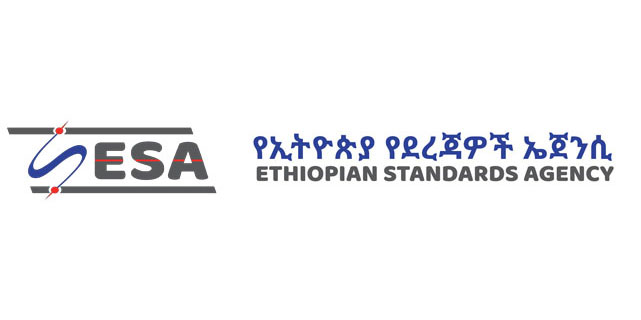
Ethiopian Standard Agency has drafted a new standard that prohibits the use of polythene materials and latex as inputs for cloth face masks for public use.
The Agency prepared the first-ever cloth face mask standard for manufacturers that describes the requirements for testing, making and proper usage of masks. A technical committee under the Agency has been drafting the document for the past month and tabled it to the National Standardisation Council, which is chaired by Melaku Alebel, minister of Trade & Industry, for approval last week.
Along with the technical team, a working group composed of members from the Ministry of Health, the Food & Drug Administration and textile manufacturers including companies in the Hawassa Industrial Park took part in the drafting process. The new face mask standard lies under the textile sector, one of the eight standard categories.
The washable cloth face masks shall be used for a minimum of five washing cycles after disinfection, according to the draft standard, which was designed in line with the World Health Organisation (WHO) guidelines. The full wash cycle includes wetting, washing and rinsing and should last at least 30 minutes with a wash temperature of 60 degrees centigrade.
It also specifies the minimum requirements for the manufacturers, including the design and performance of the barrier masks, and also the testing methods for the cloth face masks intended to reduce the risk of general transmission of the infectious agent.
The barrier mask must be a multi-layer composite made of fabrics (nonwoven, woven, knit) with or without film and must have a device for adjustment around the user’s head or ears, according to the draft standard.
The masks shall have a minimum of two layers, an outer layer and an absorption layer, and must cover the middle of the nose to the bottom of the chin. Besides, all material used for barrier mask preparation should be allergic free and skin-friendly. The standard also set a cleaning and drying, packaging and labelling requirement for cloth face masks.
Individual or grouped packaging solutions are at manufacturers' discretion, and reusable cloth masks shall be packed in the same size in suitable packaging material free from contaminants. The manufacturers should also clearly mark their name, address, number of masks packed, instructions, and a recommended period of use for the barrier mask on the packaging.
“The hygiene conditions shall be controlled to reduce risks of contamination,” said Yesima Jeru, communications director at the Agency, which was established in 1972 and reports to the Ministry of Innovation & Technology.
As of yet, the Council has approved 253 mandatory and more than 10,000 voluntary standards. Generally, once the standards are set, they will remain active for five years before being revised, reaffirmed or withdrawn.
The standard has a significant impact on preserving the quality of the cloth face masks that the community uses, according to Seharela Abdullah, state minister for Health.
“It'll stimulate the industry and businesses,” she added.
Recently, garment and textile businesses have been diverting their production lines to making face masks, including factories in Hawassa Industrial Park.
Impact Printing and Graphics is one of the businesses that recently started making cloth face masks. The company sent its raw materials to the Ethiopian Conformity Assessment Enterprise a month ago and is currently waiting for approval, according to Tsegaye Geze, operational manager at Impact.
"As a company, we're responsible for the product we produce, and that is why we sent the sample for approval," said Tsegaye.
Three weeks ago, the Ethiopian Food & Drug Authority issued its newest directive on standards for the certification, production and sale of cloth face masks. The directive hopes to decrease the public’s use of medical face masks designed for health professionals.
It is essential to draft a standard for face masks since no one knows how most of the face masks in the market are made and by whom, according to Tadele Kumie, a management systems consultant at Integrated Quality Solutions Plc.
The draft standard will help to protect the health and well-being of citizens, because it took the international standard experience from other countries, according to Tadele.
For Tadele, after the approval of the standard, it should be sent to the manufacturers and suppliers to make it accessible. Additionally, awareness should be created amongst the public on how to use face masks through the media and health organisations, he recommended.
PUBLISHED ON
Jun 07,2020 [ VOL
21 , NO
1050]


Fortune News | Dec 10,2018

Life Matters | Aug 28,2021

Fortune News | Jan 01,2022

Commentaries | Sep 18,2021

Radar | Feb 15,2020

Fortune News | Mar 07,2020

Sunday with Eden | Jun 13,2020

Radar | Aug 20,2022

Fortune News | May 31,2020

Dec 22 , 2024 . By TIZITA SHEWAFERAW
Charged with transforming colossal state-owned enterprises into modern and competitiv...

Aug 18 , 2024 . By AKSAH ITALO
Although predictable Yonas Zerihun's job in the ride-hailing service is not immune to...

Jul 28 , 2024 . By TIZITA SHEWAFERAW
Unhabitual, perhaps too many, Samuel Gebreyohannes, 38, used to occasionally enjoy a couple of beers at breakfast. However, he recently swit...

Jul 13 , 2024 . By AKSAH ITALO
Investors who rely on tractors, trucks, and field vehicles for commuting, transporting commodities, and f...

Jul 12 , 2025
Political leaders and their policy advisors often promise great leaps forward, yet th...

Jul 5 , 2025
Six years ago, Ethiopia was the darling of international liberal commentators. A year...

Jun 28 , 2025
Meseret Damtie, the assertive auditor general, has never been shy about naming names...

Jun 21 , 2025
A well-worn adage says, “Budget is not destiny, but it is direction.” Examining t...